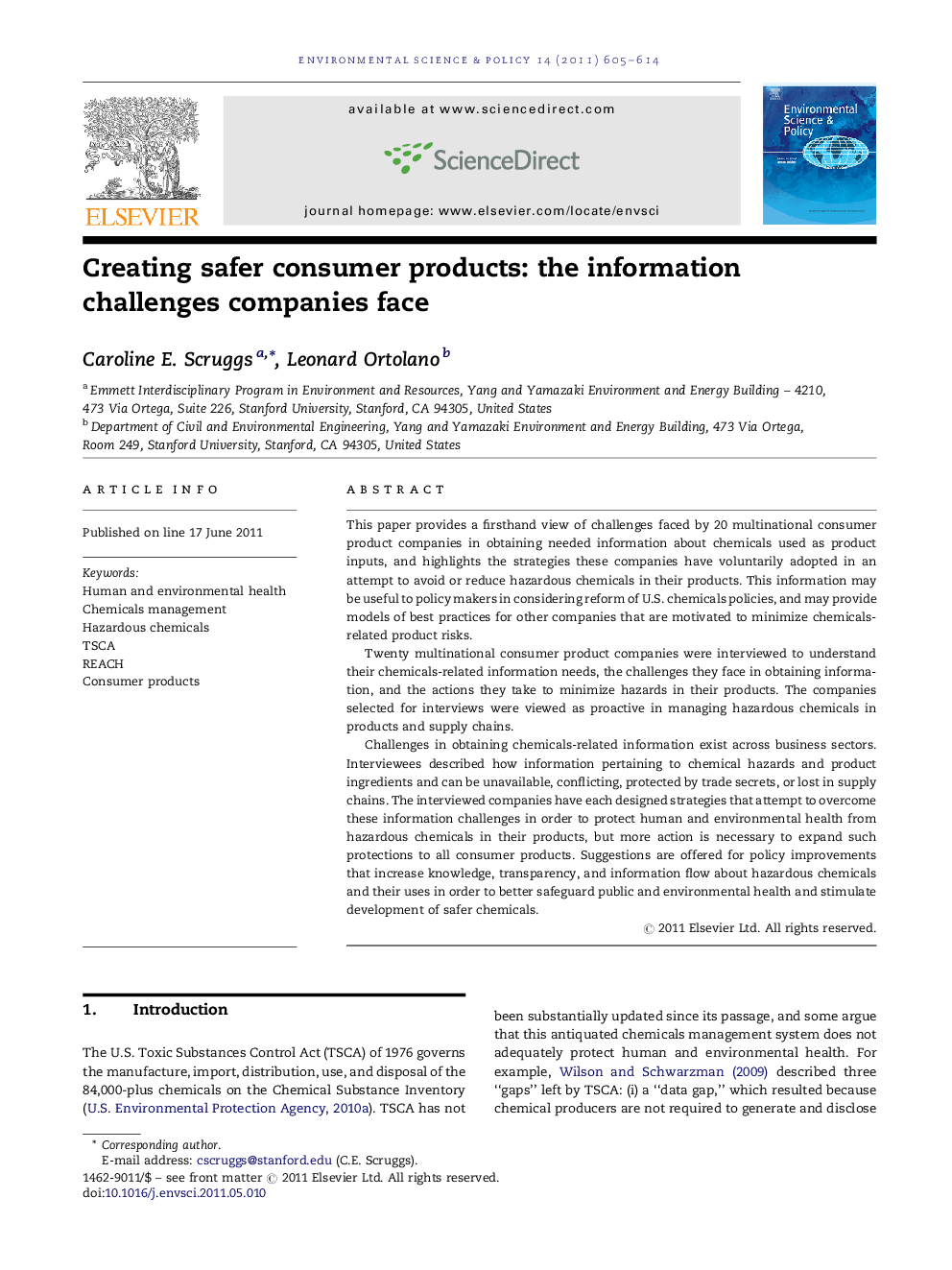| Article ID | Journal | Published Year | Pages | File Type |
|---|---|---|---|---|
| 1053887 | Environmental Science & Policy | 2011 | 10 Pages |
This paper provides a firsthand view of challenges faced by 20 multinational consumer product companies in obtaining needed information about chemicals used as product inputs, and highlights the strategies these companies have voluntarily adopted in an attempt to avoid or reduce hazardous chemicals in their products. This information may be useful to policy makers in considering reform of U.S. chemicals policies, and may provide models of best practices for other companies that are motivated to minimize chemicals-related product risks.Twenty multinational consumer product companies were interviewed to understand their chemicals-related information needs, the challenges they face in obtaining information, and the actions they take to minimize hazards in their products. The companies selected for interviews were viewed as proactive in managing hazardous chemicals in products and supply chains.Challenges in obtaining chemicals-related information exist across business sectors. Interviewees described how information pertaining to chemical hazards and product ingredients and can be unavailable, conflicting, protected by trade secrets, or lost in supply chains. The interviewed companies have each designed strategies that attempt to overcome these information challenges in order to protect human and environmental health from hazardous chemicals in their products, but more action is necessary to expand such protections to all consumer products. Suggestions are offered for policy improvements that increase knowledge, transparency, and information flow about hazardous chemicals and their uses in order to better safeguard public and environmental health and stimulate development of safer chemicals.
